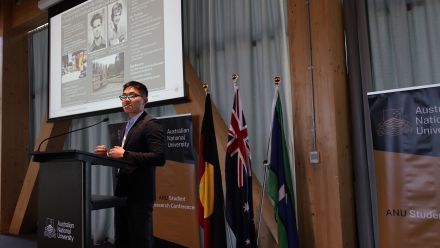Code of conduct needed to stop sexual assault in Parliament
Australia must urgently adopt a code of conduct to prevent abuse, harassment and sexual misconduct in Parliament, say leading experts and former political staffers.
The proposed code of conduct is outlined in from the Global Institute for Women's Leadership (GIWL) at 天美传媒 National University (ANU) and the Australian Political Studies Association (APSA) to the Independent Review of Commonwealth Parliamentary Workplaces led by Kate Jenkins.
The proposed code goes beyond current ministerial standards and has been drafted and endorsed by experts from across Australia, including Professor Elizabeth Reid - adviser on women's affairs to former Prime Minister Gough Whitlam.
"We need to restore pride in our Parliament and repair the loss of trust that has taken place," the GIWL/APSA submission reads.
GIWL Director Professor Michelle Ryan said: "Parliament should be a safe place where the diversity of the Australian people can be effectively represented, leading to better policy and practice.
"For all these reasons, a code of conduct applying to all who work in parliamentary workplaces must be a priority."
President of APSA and Dean of the ANU College of Asia Pacific, Professor Helen Sullivan, said: "天美传媒 people - all of them - have the right to expect a Parliament that represents them effectively and with integrity. This document shows how it might be done."
GIWL Research Fellow Dr Blair Williams said the code would apply to not only parliamentarians and their staff, but everyone working at Parliament House, including non-ministerial staff and journalists, as well as visitors.
"Our Parliament should be a symbol of opportunity, integrity and inclusivity," Dr Williams said.
"However, recent evidence and revelations paint a damning picture of a Parliament where women don't feel respected and don't feel safe. A Parliament where to be a women not only puts you at a disadvantage but can put you in danger.
"This must stop and Parliament must do better. Anything less is unacceptable.
"A code of conduct will require women to be respected and not endangered. It will also ensure our Parliament reflects and respects the diversity of our nation and becomes a leading example of what a model workplace looks like."
According to the GIWL/APSA submission, a code of conduct must also be overseen by an independent authority such as a Parliamentary Standards Commissioner.
The commissioner would also support harassment prevention, manage complaints, and enforce consequences for those who do not uphold the code.
"It is absolutely imperative this authority be independent of parliamentarians, political parties, and executive government," ANU Emeritus Professor Marian Sawer said.
"This role should also be able to investigate current and historical allegations.
"It should handle and report on everyday incidents as well as more serious complaints, in order to increase awareness of its purpose."
In addition to a code of conduct and independent authority to oversee it, the GIWL/APSA submission calls for Parliament to also adopt transparency, responsibility, and training when it comes to gender equality.
"Transparency includes annual reporting on complaints and regular surveys of staff's workplace experiences," Dr Williams said.
"Responsibility would see Parliament make a clear public commitment to gender equality by adopting a Gender Equality Action Plan.
"And training would involve mandatory training for all staff working at Parliament House, led by experts in gender-based violence."
The GIWL/APSA submission to the Independent Review of Commonwealth Parliamentary Workplaces follows co-hosted by both organisations at ANU.


